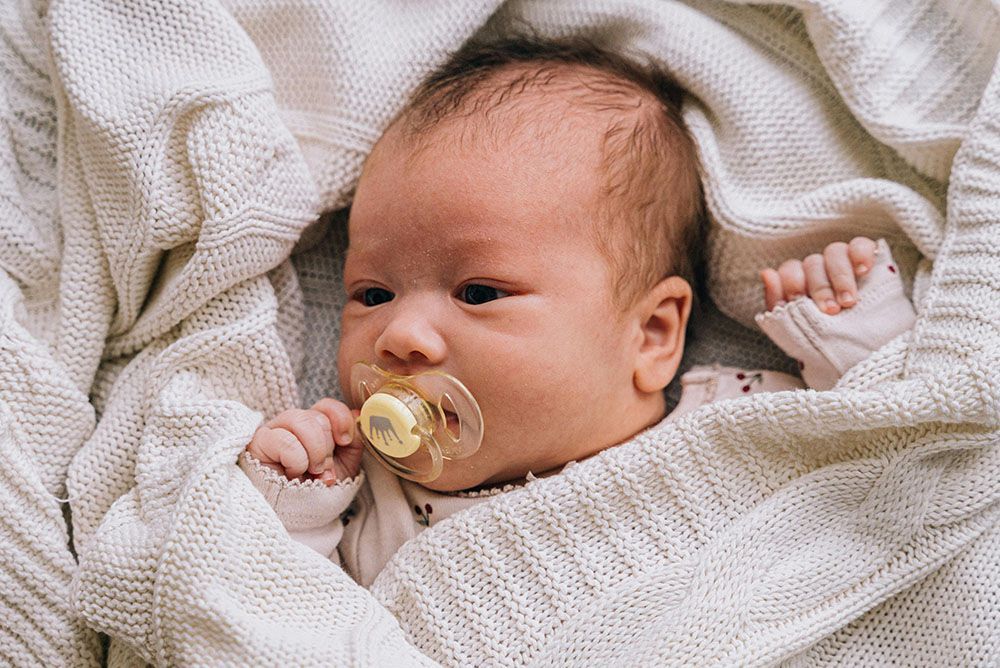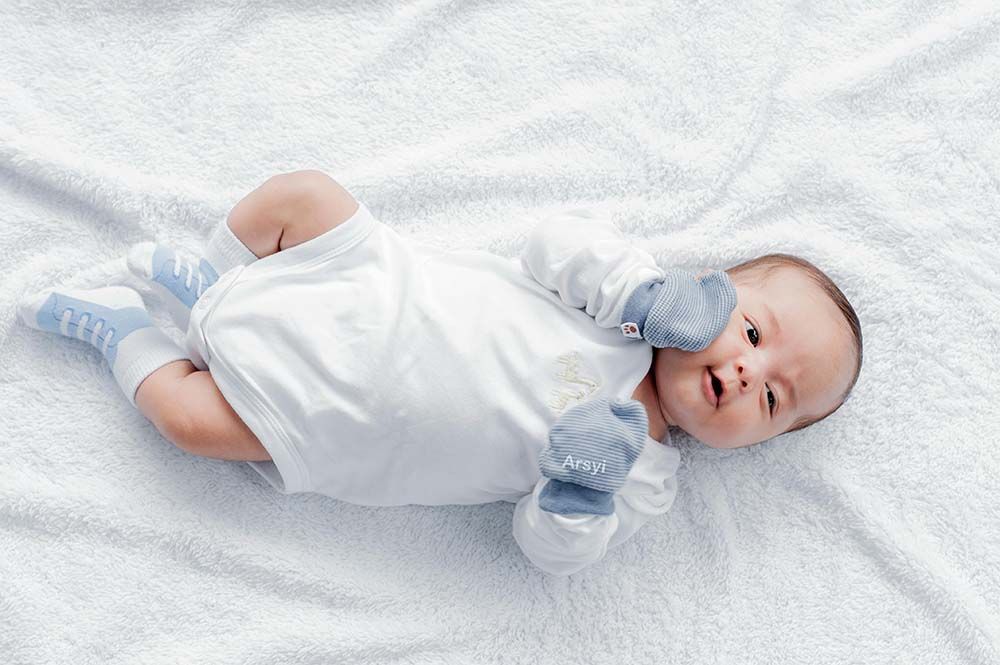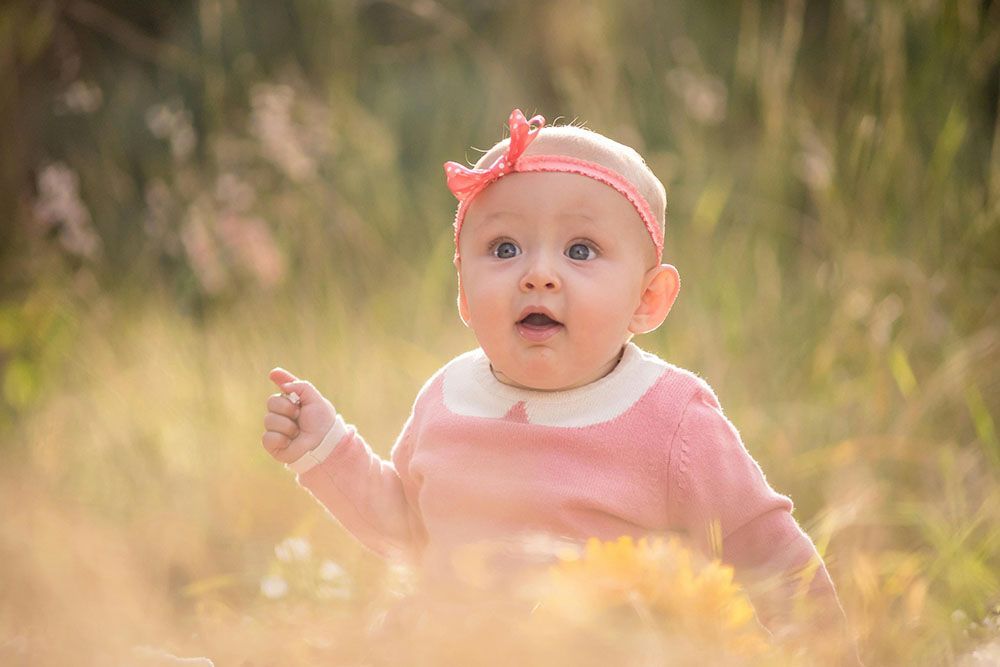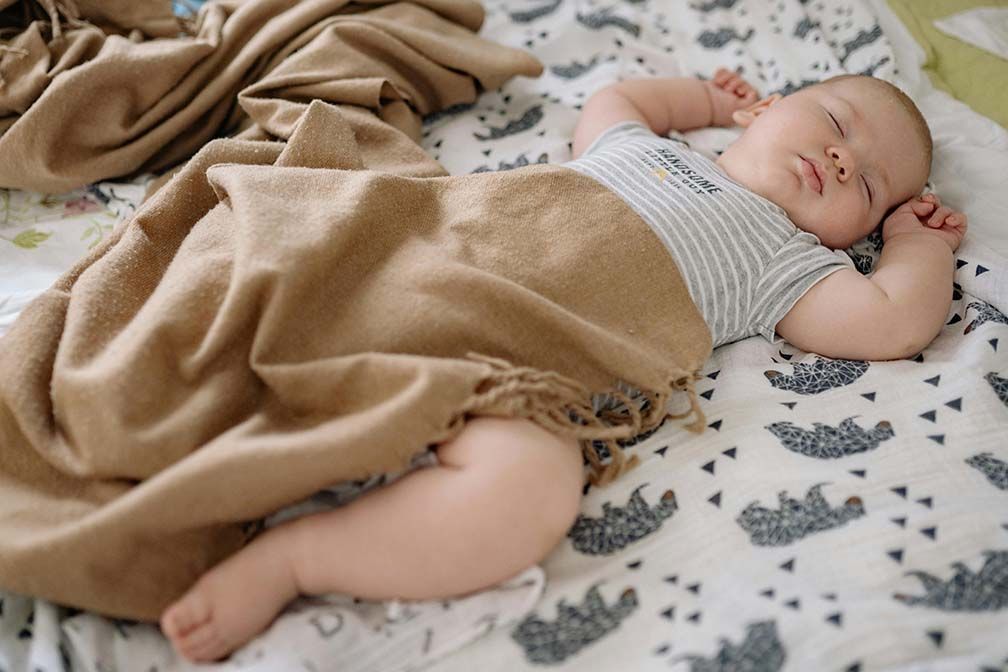

Are you troubled by getting up at night frequently to comfort your baby for suddenly night waken-up? You are not alone, since it is a widespread phenomenon among babies, commonly known as "Baby Sleep Regression". Pediatricians say it is a temporary stage and is common for babies to experience. If you are having difficulties with it, welcome to read this article to help your baby return to normal sleep patterns.
IN THIS ARTICLE
What is Sleep Regression in Babies?
What Causes Baby Sleep Regression?
What are Signs of Baby Sleep Regression?
When is the Typically Baby Sleep Regression Age?
How to Deal with Baby Sleep Regressions?
What is Sleep Regression in Babies?
Sleep regression often refers to babies who sleep well switch to a decreasing and irregular sleep pattern suddenly. Babies at this time usually have difficulties or simply refuse to sleep, some even wake up frequently even though they can live an independent sleep originally. But don't worry too much, this period usually won't last too long, generally about 2 to 4 weeks. However, if you don't deal well with sleep regression, the short period will be prolonged to an inestimable one.
What Causes Sleep Regression in Babies?
The reasons can be various during different age, but they are roughly the same. They are mainly divided as following listed:
Unsteady Sleep Circles: Around at the age of 12 weeks, babies may start to develop and adjust their own sleep patterns, to be more awake at daytime and asleep at night, or shifting between "light" and "deep sleep" cycles. During this period, they may wake and struggle to fall back asleep.
Developmental Milestones: There are different developmental changes occurring in different ages, such as teething, learning new skills (scrawl, stand or sit up), learning speaking, etc. The massive energy consuming or the sense of uncomfortable can affect sleep.
Variable Environment: Some babies exhibit high awareness of the external condition, who may not fall asleep due to subtle changes in the surroundings, such as temperature, light or noises.
Emerging Separation Anxiety: With the growing of babies, an increasing sense of cognition will be generated in some baby's mind, reaching a peak at 10 - 24 months. They will become anxiety and start to cry when parents or the close people leave them alone. And they may suddenly wake up at night and cry to find you for comforting.
Sudden Newly-added Routine: Any changes in daily routine or timing management can also disturb baby's sleep pattern.
What are Signs of Baby Sleep Regression?
If you observe that your baby has the following behaviors, pay attention to those signs, telling you that your baby may be experiencing a great sleep regression.
* Wake up several times without regularity at night
* Cannot fall into asleep smoothly when the bedtime is approaching
* Don't fall asleep without cuddling
* Become fussy or cry more frequently when going to bed
* Refuse take naps or the nap time is largely shortened
When Do Babies Have Sleep Regression?
3 to 4 month regression
At around 3 months, baby's sleep patterns have distinctively changed, and will be formed a regular pattern at around 4 months. It is mainly affected by some developmental milestones. Since it is the first time, it is often regarded as the most torturous regression.
8 month regression
At this time, baby becomes more active, who will start to learn scrawl and some more complex movements. And they do not take naps as many as before, gradually shortening to 2. Moreover, babies start to generate their cognition to identify the surrounded people and a sense of separation anxiety will be emerged silently, so that they may wake up suddenly to find soothing from the caregivers.
12 month regression
Babies at 12 month begin to stand up, which requires more energy as they reach a new significant milestones. This may lead to a short sleep regression because they are exciting to practise new skills over and over again, which may lead to overly tiredness, making them hard to fall asleep.
18 month regression
At this age, the blooming curiosity impels babies to explore the world around them, promoting them to be more independently. Thus, the wake windows will be prolonged to a new level, which may lead to excessive fatigue and make it difficult for babies to fall asleep.
Except for this typical baby sleep regression ages, it can also happen around 5 months, 6 months, 10 months and 2 years. What may be mainly triggered by significant milestones in development. These can affect sleep because they can bring discomfort feelings or require more time to practise newly-learned skills.
QA: Do all babies have to go through sleep regression?
Yes. But the degree of regression varies from baby to baby. Some babies may not show obvious sleep resistance behaviors, while some have a severely hard time with sleep. And it is normal that not all babies will go through each stage of sleep regression. Thus, the crucial is to keep a close eye on baby's behavior and adjust the sleep routine appropriately to maintain enough sleep.
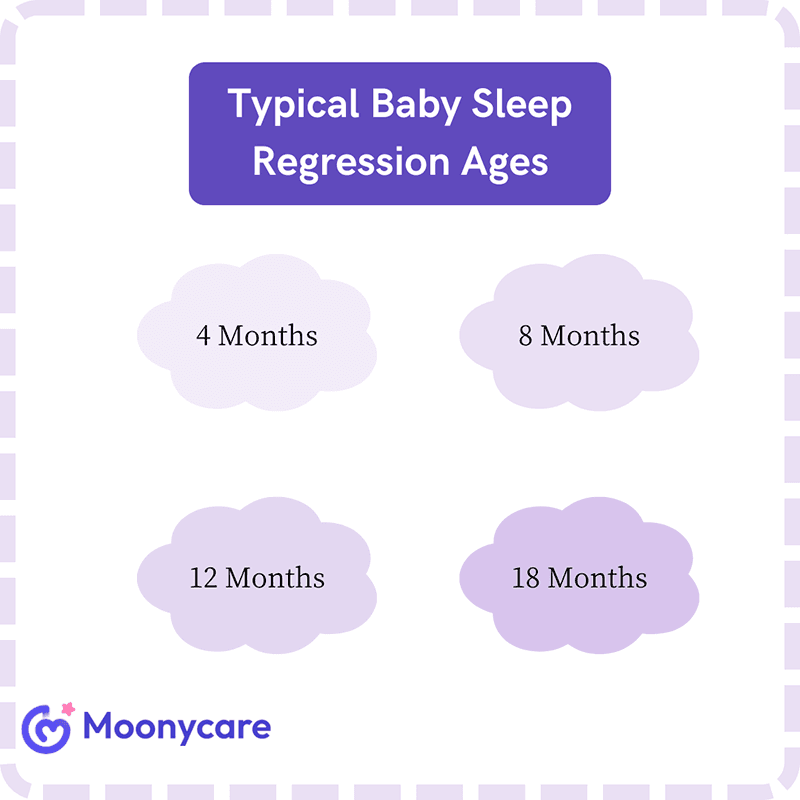
How to Deal with Sleep Regressions?
To help baby sleep regression, combining with the experiments and the guidance of parental experts, it is reported that the most effective solution is to consistently keep a healthy sleep routine that fits your baby and be patient to wait for your baby get back to original sleep patterns. Of course, here are additional solutions that can also help you overcome this issue.
Prolong the duration of wake windows and add more activities:With the rapid development of babies, they gradually form a rhythm to distinguish day and night, and they can keep a longer awake time at daytime. So you can adjust the awake windows appropriately to consume their energy, allowing them to better fall asleep.
Make baby learn to self-soothing themselves when sleeping:Babies will generate sleep association when falling asleep with the help of parents or other caregivers, who may wake up when they are left alone. So it is necessary to allow your baby to learn to fall asleep independently when they grow older, around 4 months, allowing them to calm themselves while awake.
Intake enough foods:Sometimes, babies can wake up due to hungry. Thus, make sure your baby get enough food or nutrients before sleeping.
Create a comfortable sleep environment:Make sure that the room is good for sleeping, like dark, quite and cool. A white noise machine or dark-colored curtain can block out the noises and light. But if your baby gets anxious when it is too dark, you can also use a nightlight to help them sleep.
Last Words
Baby Sleep regression is full of challenges for parents, especially for new parents. However, it is normal phenomenon. Don't make noticeable adjustments in routine at this time, and it will go on quickly with the time flies. But if it still hasn't gone after a long period of trying the possible training methods, you can take consideration into seeking help from your pediatrician for more professional strategies or sweeping out other potential causes.




